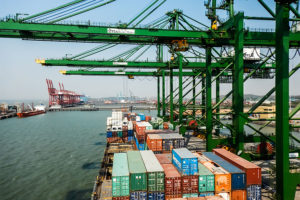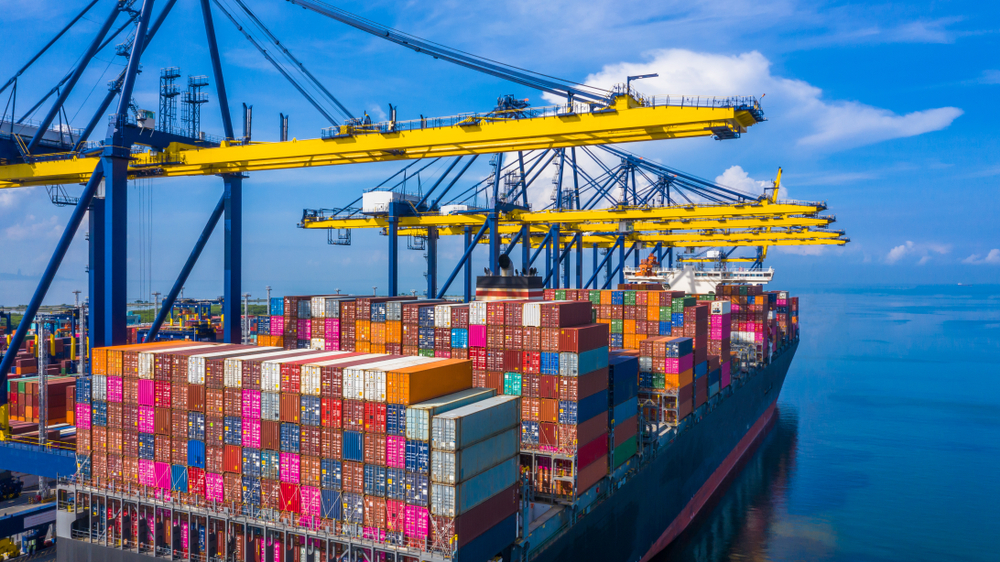Tamil Nadu logistics policy offers incentives to businesses
The Tamil Nadu government has announced a new policy that focusses on advancing the infrastructure and logistics sector in the state. The policy will facilitate mega projects in logistics sector – entailing investments of more than Rs. 500 crores, by considering them for customised incentives.

Image Credit: Shutterstock
The Tamil Nadu government has introduced a new logistics policy – Logistics Policy and Integrated Logistics Plan (TNILP) 2023, which foresees several specific interventions across a five-year and 10-year period. With the vision of promoting an “integrated, reliable, cost-efficient and sustainable logistics system in the State of Tamil Nadu”, the policy has identified the following strategic objectives:
- Enabling Integrated and robust logistics infrastructure development
- Promoting availability of cost-effective & high-quality services
- Creating enabling environment for logistics activities
- Inculcating resilience and sustainability in Logistics Eco-system
- Adopting new age technologies in Logistics sector
- Enabling skill development in logistics sector
The government will coordinate with financial institution such as National Investment and Infrastructure Fund (NIIF), Tamil Nadu Infrastructure Fund (TNIF) and other suitable sources for leveraging funds.
As per the latest policy, the government will encourage phase-wise preparation of logistics master plan for major cities and metropolitan regions in the state to promote city logistics. It will identify and select land parcels, minimum 50 acres at strategic locations in the state for development of multi-modal logistics parks, warehousing clusters and private freight terminals (PFT), which would be developed by private participation.
Listed below are some of the key features of the newly introduced policy:
- The policy will address inefficiencies across the existing infrastructure (trunk and terminal), services, and operating and regulatory environment in the state.
- It is expected to generate around 140,000 to 160,000 direct and indirect employment opportunities
- It establishes a comprehensive policy framework with the goal of bolstering economic growth over the next five years.
- The policy focuses on an integrated logistics plan that includes a range of interventions identified from the initial baseline study, detailing their expected outcomes, timeline and key stakeholders responsible for implementation.
- Under the policy, an institutional framework and mechanism will be established to leverage a two-tier institutional structure.
Monetary support from the government
The government will provide fiscal incentives under the policy for a period of 5 years. These will be applicable for logistics service providers, logistics technology providers and developers of integrated logistics parks. The extension of these incentives will be based upon evaluation on effectiveness and emerging needs of the projects.
Criteria and eligibility required:
- Projects registered and operating within Tamil Nadu will qualify for the incentives.
- Incentives will be extended to new units and projects that are set to commence operations within the effective period of policy.
- Existing units and projects that have started commercial operations prior to the announcement of this policy are also eligible if they are taking initiatives to meet the eligibility criteria.
The provision of monetary incentives are expected to benefit multiple logistics-related sectors operating in Tamil Nadu. These include:
- Technology and Innovation sector: Technology providers, startups and other businesses providing solutions for logistics efficiency improvement in Tamil Nadu, will receive a one-time reimbursement of 100% of the patent registration fees in India. The reimbursement will be subject to a cap of ₹ 25,000 per patent.
- Service providers: Logistics services providers operating via registered offices in Tamil Nadu are subject to receive a one-time cash award of 50% of the technology adoption cost, up to a cap of ₹ 10 million.
- Integrated Logistics Parks: Developers of Integrated Logistics Parks located in “B” and “C” category districts in the state will be eligible for special incentives for warehousing and logistics.
- Trucking enterprises: Logistics trucking companies and enterprises registered in Tamil Nadu will be eligible for a one-time reimbursement of 100 percent of vehicle registration charges and road tax for one year for reefer trucks.
Furthermore, the Government of Tamil Nadu has formed Tamil Nadu Emerging Sector Seed Fund and TANSEED grant fund under Tamil Nadu Start-Up and Innovation Policy for supporting start-ups in the state with a corpus of Rs.500 Crore. Start-ups in logistics sector will also be eligible to avail this benefit.
The policy has also incorporated learnings from LEADS 2021, where the state was ranked 4th in terms of logistics performance. The LEADS report highlighted some key deficiencies like connectivity and infrastructure issues at Chennai airport, unorganised air cargo, congestion at Chennai port, high freight charges, etc.
With planned improvements across these areas and a long term approach towards improved business competitiveness, the Tamil Nadu Integrated Logistics Plan (TNILP) 2023 outlines a roadmap for next decade. It also specifies identified interventions, expected outcomes, timelines and key stakeholders responsible for their implementation.













Leave a comment